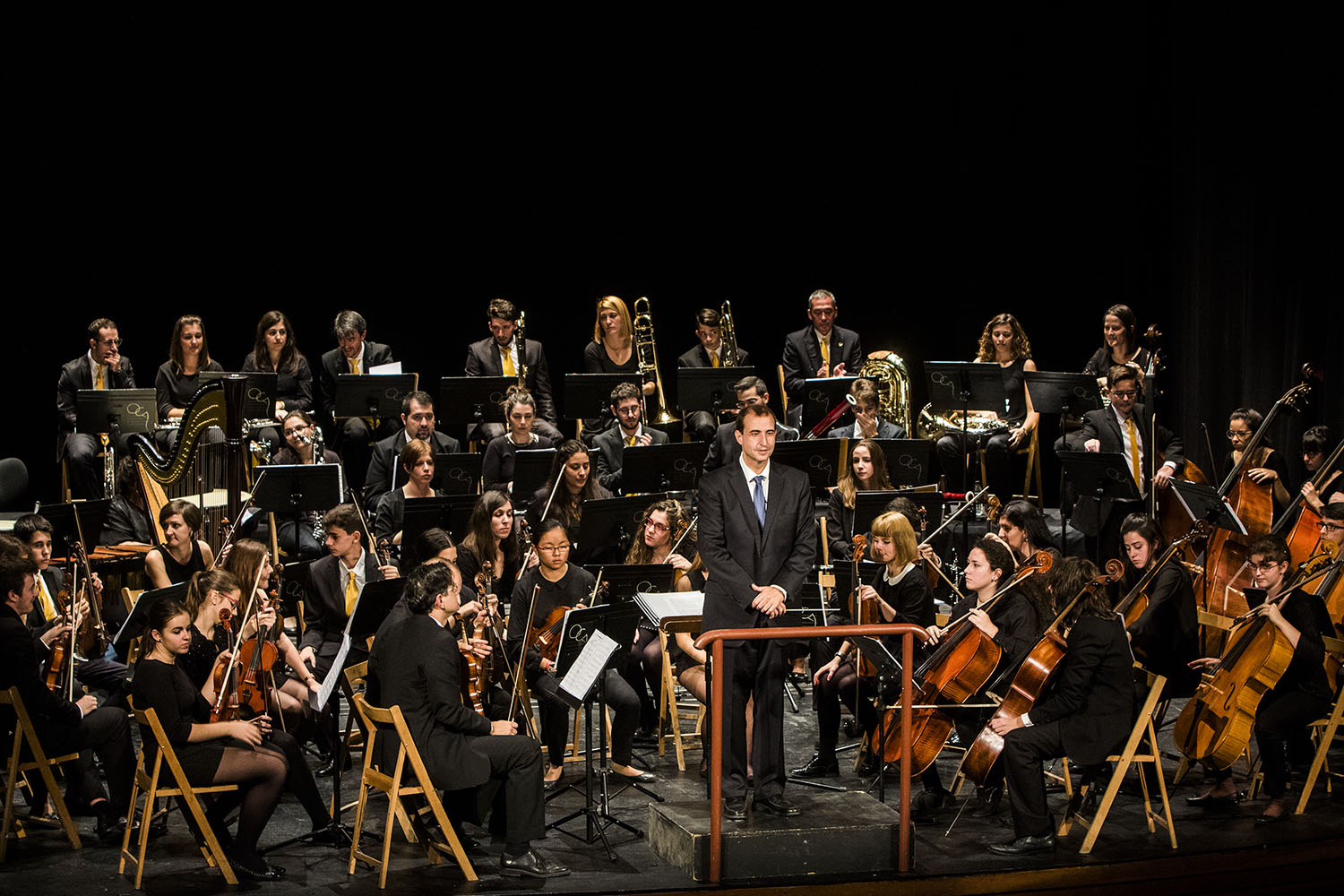THE SERIES OF OUR LIVES
THEME TUNES OF THE MAIN SPANISH SERIES SINCE THE SEVENTIES
Sunday 18 November. 13:00h. Teatro Salón Cervantes. 6€
Concert Programme:
“CONCERT SUITV” - JESÚS CASTAÑER
13 theme tunes of the most successful Spanish series from the sixties to the present day, arranged as a suite by Jesús Castañer, resident composer of the City of Alcalá Orchestra for the 2018/19 season.
BLOCK 1:
Introduction
I. Overture (composed by the author)
II. Cuéntame cómo pasó (Tell me what went on)
BLOCK 2:
Legendary series of the seventies, the oldest in the suite. ‘Crónicas de un pueblo’ (‘Chronicles of a Village‘) brought the whole family together in front of the television. The series told the story of the inhabitants of Puebla Nueva del Rey Sancho, the name given to the fictitious village which was actually Santorcaz, a municipality in the region of Madrid, 50km from the capital. ‘Las aventuras de Curro Jiménez‘ (‘The Adventures of Curro Jiménez‘) was also typical at that time, as was the series Cañas y Barro (‘Cane and Mud‘), which became a fixture of the television during the transition.
III. Crónicas de un pueblo
IV. Curro Jiménez
V. Cañas y Barro
BLOCK 3:
Children’s and young people’s series of the seventies and early eighties. ‘Don Quijote de la Mancha‘ was broadcast from 1979 until its las episode in 1981. ‘Verano azul‘ (‘Blue Summer‘) was first broadcast a little later. It was broadcast at 16:05h on Sunday evenings and was a huge success: the situations and characters form part of our collective memory of the early eighties.
VI. Don Quijote de la Mancha
VII. Verano Azul
BLOCK 4:
Two of the most successful series of the eighties, both written by and starring Ana Diosdado and directed by Pedro Masó. ‘Anillos de oro‘ (‘Gold Rings‘), first broadcast on 7 th of October 1983, just after divorce was legalized in Spain, is maybe the series that best depicts that time. ‘Segunda enseñanza‘ (‘Second Learning‘), despite the fact that it was a little less well known than its predecessor, introduced us to a group of young actors and actresses who would later reach the top of the Spanish artistic profession; Maribel Verdú, Jorge Sanz, Amparo Larrañaga, Javier Bardem, Ana Torrent, Gabino Diego and Aitana Sánchez- Gijón, among others. The theme tunes of both series were composed by Antón García-Abril, without doubt one of the most important composers in Spanish television.
VIII. Anillos de Oro
IX. Segunda Enseñanza
BLOQUE 5:
Legendary series of the nineties. In 1989 ‘Brigada Central‘ (‘Central Brigade‘) burst onto Spanish television screens; a police series unlike anything produced up until then in Spain. It put down a marker for other products of a similar nature that would appear in later years such as ‘El Comisario‘ or ‘Policías‘, and took the pulse of the street. Then there was the massively famous ‘Farmacia de guardia‘ (‘Emergency Pharmacy‘), which currently holds the record for being the most watched series in the history of Spain.
X. Farmacia de Guardia
XI. Brigada Central
BLOCK 6:
Series from the year 2000 to now starting with ‘Amar en tiempos revueltos‘ (‘Love in Tumultuous Times‘), a successful soap opera set in the Spanish Civil War and the first years of Franco’s reign. In another rather different setting ‘Los Serrano‘ (‘The Serrano Family‘) was a milestone in the history of Spanish fiction, the controversial ending of which is now ten years old. On an equal footing was ‘Aquí no hay quien viva‘ (‘Life Is Impossible Here‘), a series that found the formula fifteen years ago, whatever that might be, to create its own slang which would end up coming out of the mouth of every Spaniard. Who can say they have never said or heard the phrase ‘Un poquito de por favor’ (a little bit of please)?
XII. Amar en tiempos revueltos
XIII. Los Serrano
XIV. Aquí no hay quien viva
